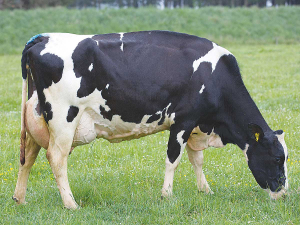Another Windfall for Fonterra Farmers, Unit Holders
Fonterra farmer shareholders and unit holders are in line for another payment in April.
 The Co-operative Difference framework was introduced to ensure on-farm practices support the delivery of the co-op’s strategy.
The Co-operative Difference framework was introduced to ensure on-farm practices support the delivery of the co-op’s strategy.
"I'm not what you would consider a Formula One farmer, but I must be doing something right,” says Fonterra farmer Francis Smits, who is quick to point out that he and his wife Regina have a simple set up on their Reporoa farm.
Yet this hasn’t stopped them achieving the top level of The Co-operative Difference since it was first introduced in the 2019-20 season. They are among around 70 farmers to do this.
Francis has been a dairy farmer for the best part of half a century and says that simplicity has always been a key focus. “One of the big things for me is to keep what I do quite simple. I don’t have a flash set up, but it works,” says Francis.
With 130 Friesen cows on their 68ha property, caring for the land is also an important part of what they do.
“We have a stream from a spring that borders the farm. That’s where we get water from so we are very careful to make sure it stays in a good condition.”
Michael Hide, Fonterra’s on-farm excellence director, says The Co-operative Difference framework was introduced to ensure on-farm practices support the delivery of the co-op’s strategy.
“We’re always looking to protect and grow the value of our farmers’ milk,” says Hide.
“The Co-operative Difference helps us stay at the forefront of key issues such as safety and animal wellbeing while also recognising farmers like the Smits who consistently provide the highest quality milk. Ultimately, it means our milk is backed by the quality and sustainability credentials our customers and communities expect.”
Te Tihi level, which translates to “The Summit”, means achieving milk quality excellence for at least 90% of the season on top of meeting the base criteria across five performance areas within the Co-operative Difference framework – Environment, Animals, People & Community, Co-op & Prosperity and Milk.
The Smits have always supplied Fonterra, or its legacy companies, and Francis says there are clear reasons for that.
“I like the co-operative model and Fonterra’s stability has always made us feel secure, which is important. The management seems to be more levelheaded compared to what we had before, and I have confidence that they are doing their best for farmers.”
Francis’ passion for farming started at a young age. When he was just 11, he worked as a relief milker for the farmer down the road.
“Then I left school in 1975 and worked as a farm boy for 8 years,” he says.
Using the skills he learnt during that time, Francis started a 50/50 sharemilking role milking 135 cows. He did that for five years before another five-year stint sharemilking on another property milking 360 cows.
In 1993 Francis and Regina bought the farm they are currently on and haven’t looked back. He says there’s a lot to enjoy about the farming lifestyle.
“I’ve never minded the early starts and I like working outside.”
As guests gathered on what is known as the Speaker's Lawn - a beautifully manicured patch of grass behind the main buildings of Parliament - to mingle and enjoy a lamb chop to celebrate National Lamb Day, the mood was very much upbeat.
Global dairy prices are on a roll, recording a fourth consecutive jump on the Global Dairy Trade (GDT) auction this year.
Booming primary sector exports are helping lift earnings for farm service providers.
The world is waking up to the disadvantages of carpets derived from petrochemicals, creating opportunities for New Zealand strong wool.
The red meat sector finds itself in "a very rare set of circumstances", says Federated Farmers meat and wool industry chair Richard Dawkins.
Controls on the movement of fruit and vegetables in the Auckland suburb of Mt Roskill have been lifted.
OPINION: Staying with politics, with less than nine months to go before the general elections, there’s confusion in the Labour…
OPINION: Winston Peters' tirade against the free trade deal stitched with India may not be all political posturing by the…